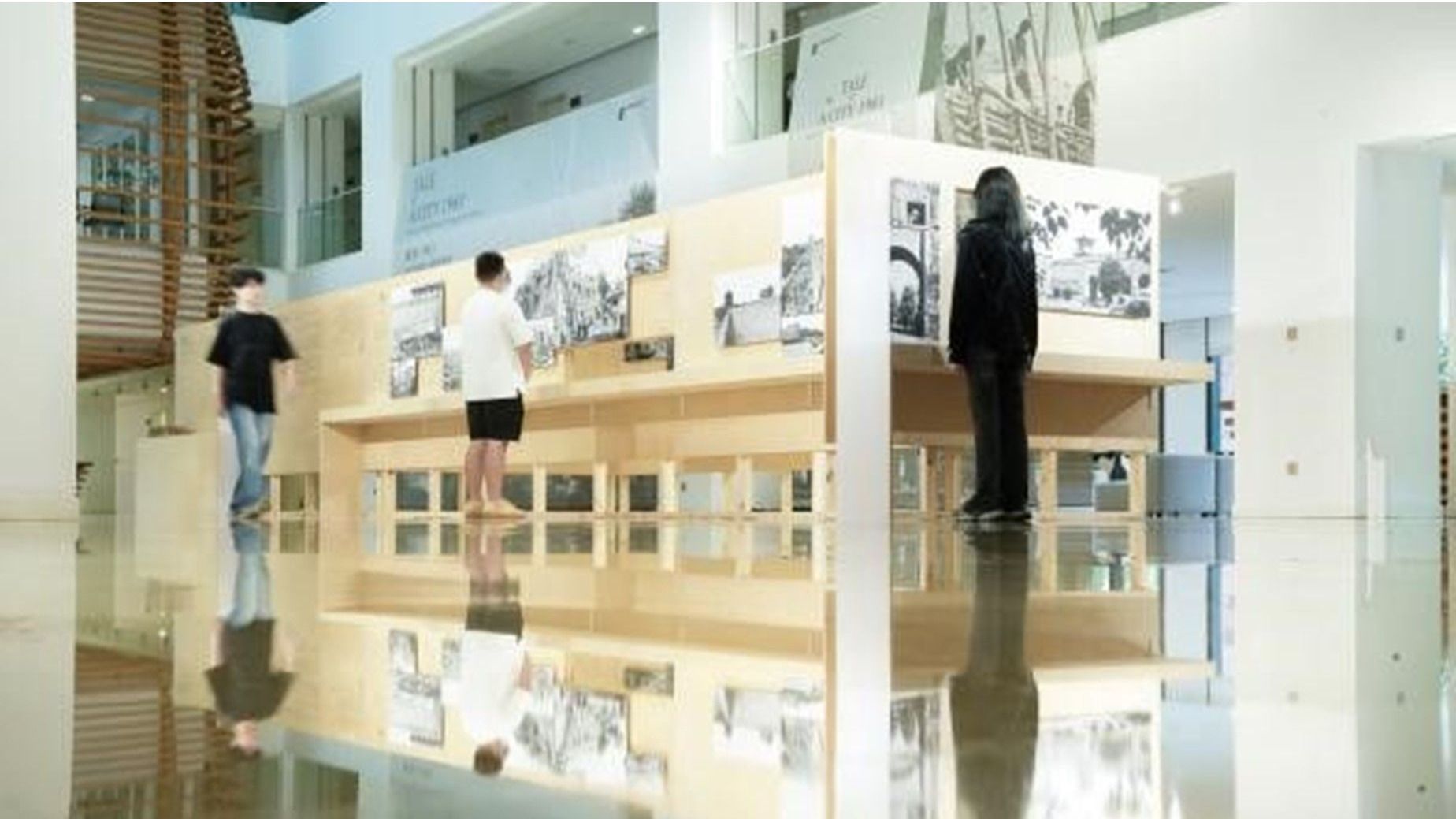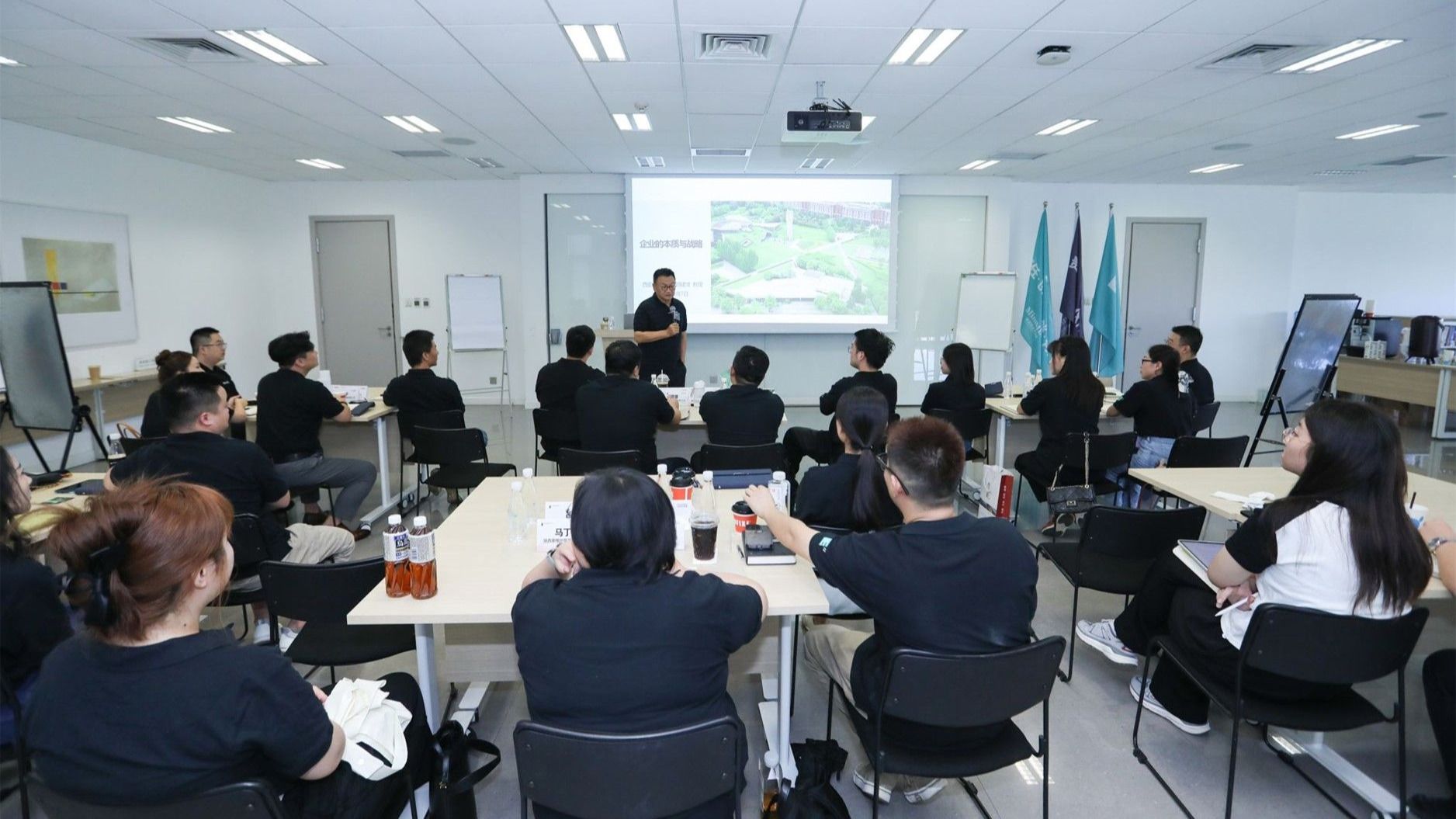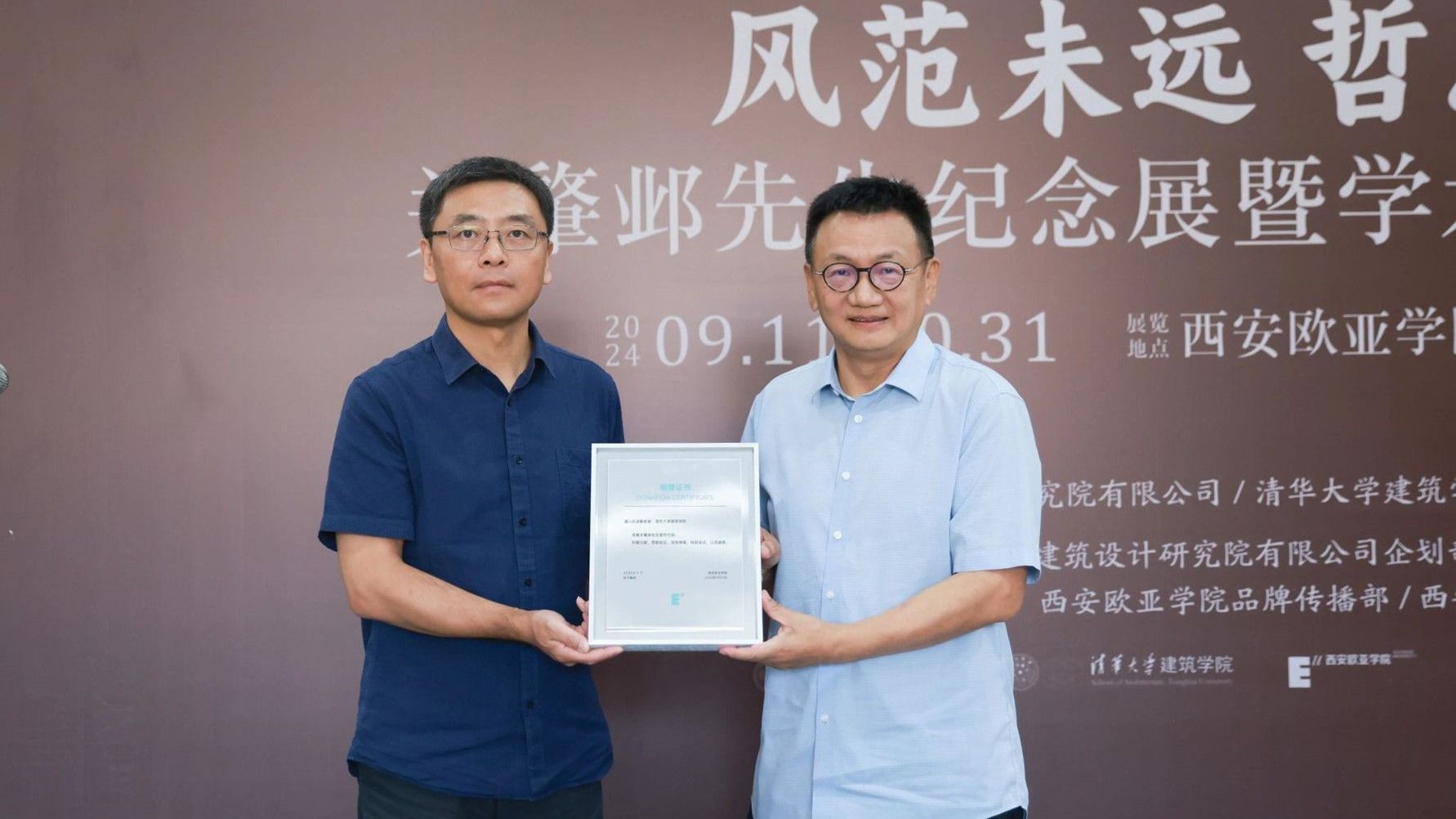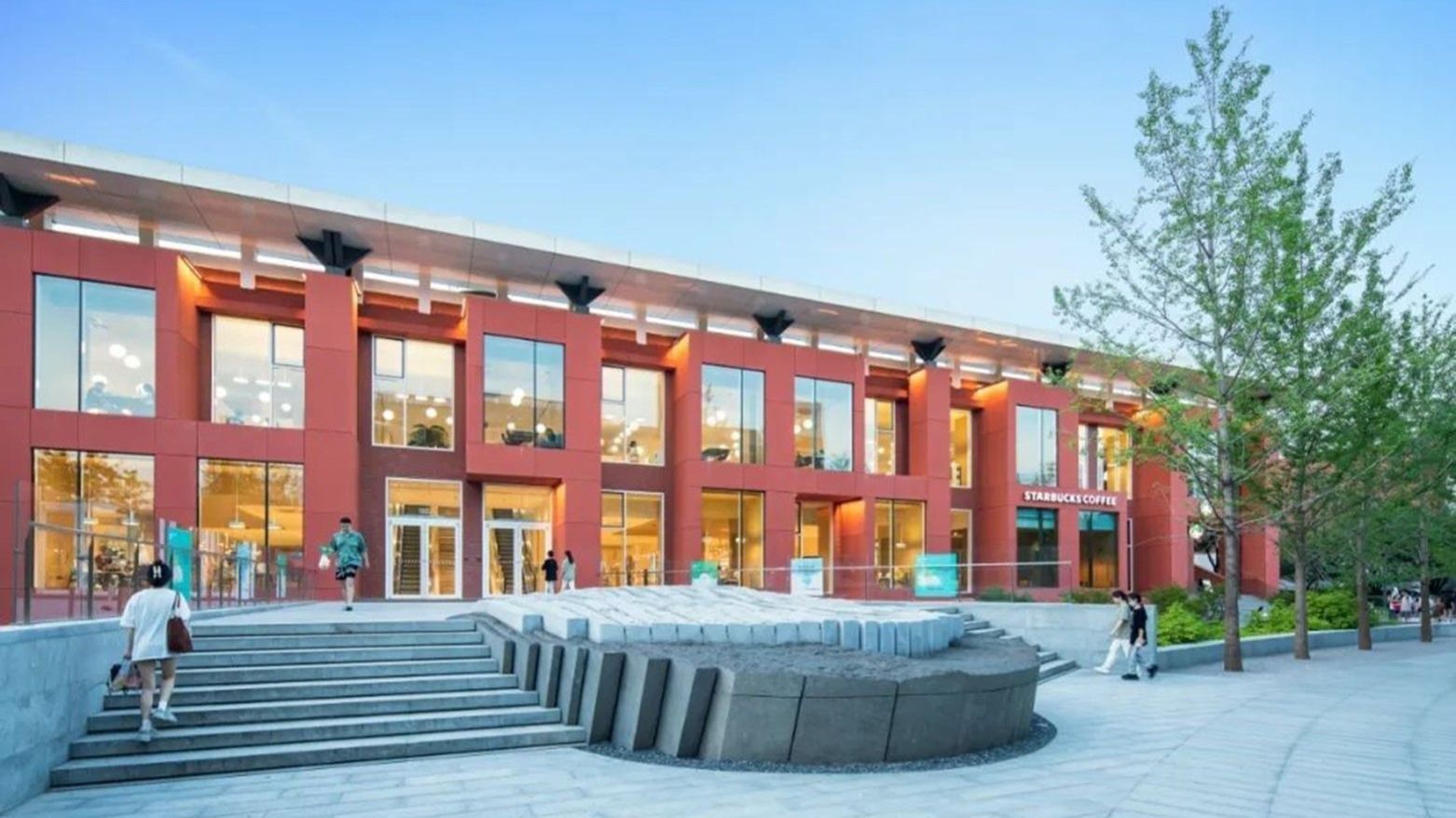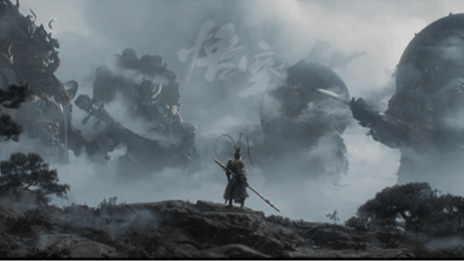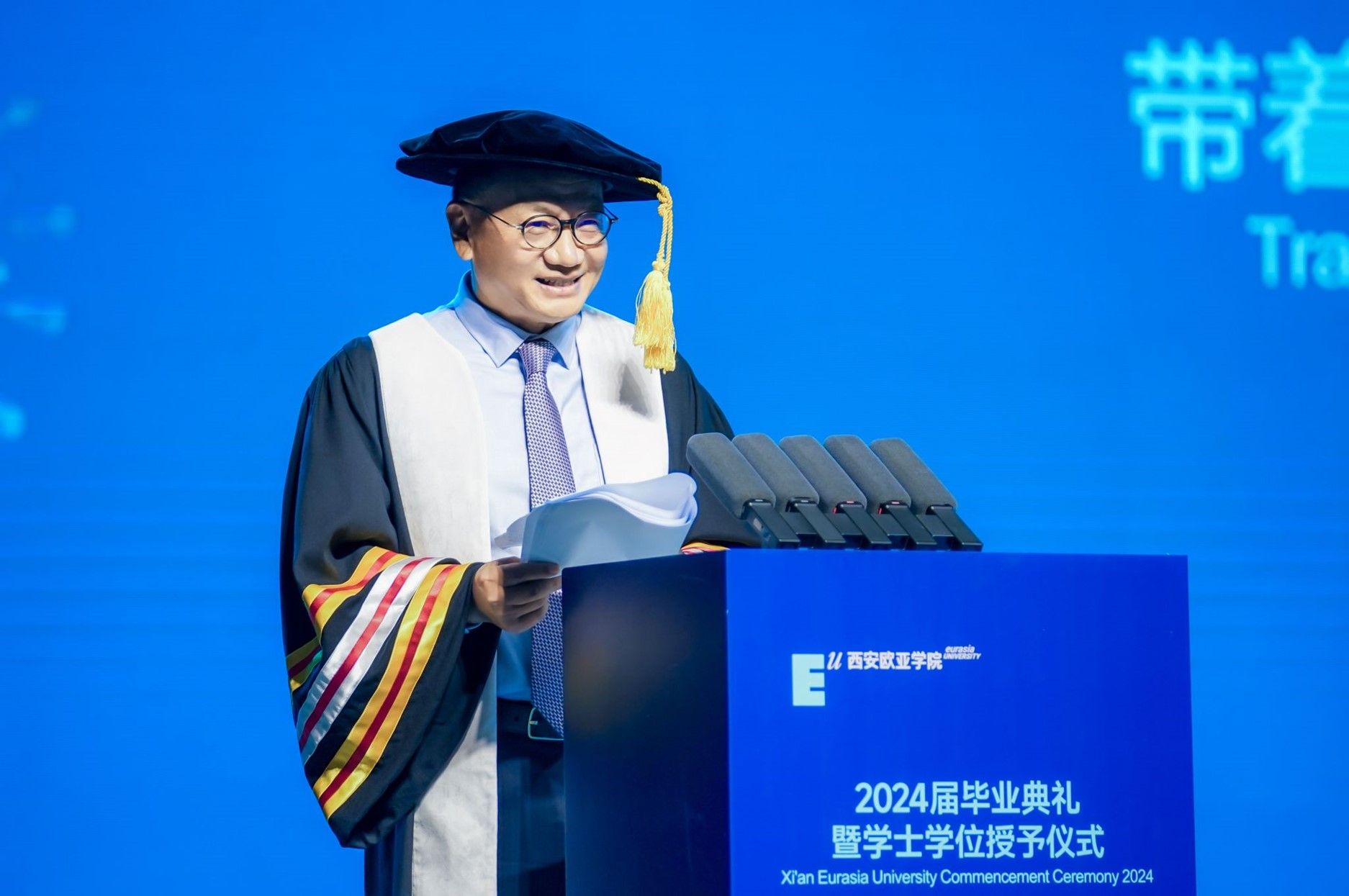
(Fig. 1) Dr. Hu Jianbo, founder of Xi'an Eurasia University, delivered a speech at the 2024 Graduation Ceremony
Dear graduates, parents, teachers, President Liu Jin, and members of the Academic Degree Evaluation Committee:
Good morning! (Applause)
Welcome to the 2024 Graduation Ceremony of Xi'an Eurasia University. I'd like to thank all the parents and guests for joining us today. Your presence adds warmth and a sense of ceremony to this celebration.
First, I would like to express my heartfelt congratulations to all the graduates here! Congratulations on your successful graduation (Applause). Secondly, I would like to thank all the faculty and staff of our University and friends from our cooperative enterprises. The daily growth and harvest of our students are the collective progress of your efforts.
Before I start my speech, let's play a little game together. Let's close our eyes and think about it: If you had the chance to say an encouraging word to yourself when you just entered Xi'an Eurasia University, what would come to your mind?
To tell you the truth, during my college years, I had some tough times and felt like no one understood me. If I could speak to my 20-year-old self now, I'd tell him: "Don't be sad. The days when life knocks you down for being arrogant and maverick are still ahead (laughter). But it's that very character that will shape your future."
See, this is how I've made peace with my past. After sixty years, I've learned to comfort myself.
Time truly flies. Next year will mark the 30th anniversary of Xi'an Eurasia University. At that time, we will organize a series of celebration activities. We welcome all of you to come back as alumni and share what advice you, having been around the block, would give to your younger selves upon entering the university.
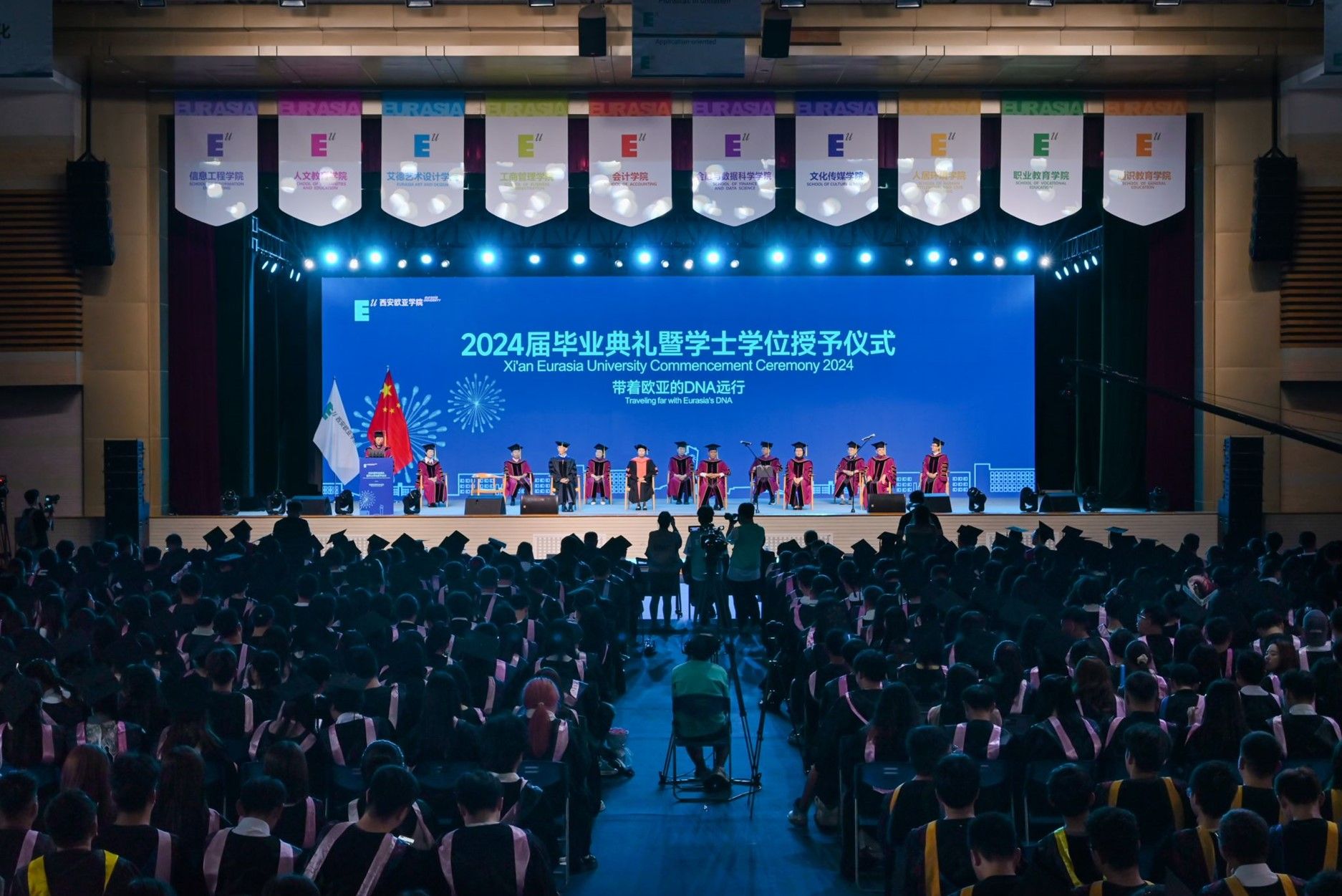
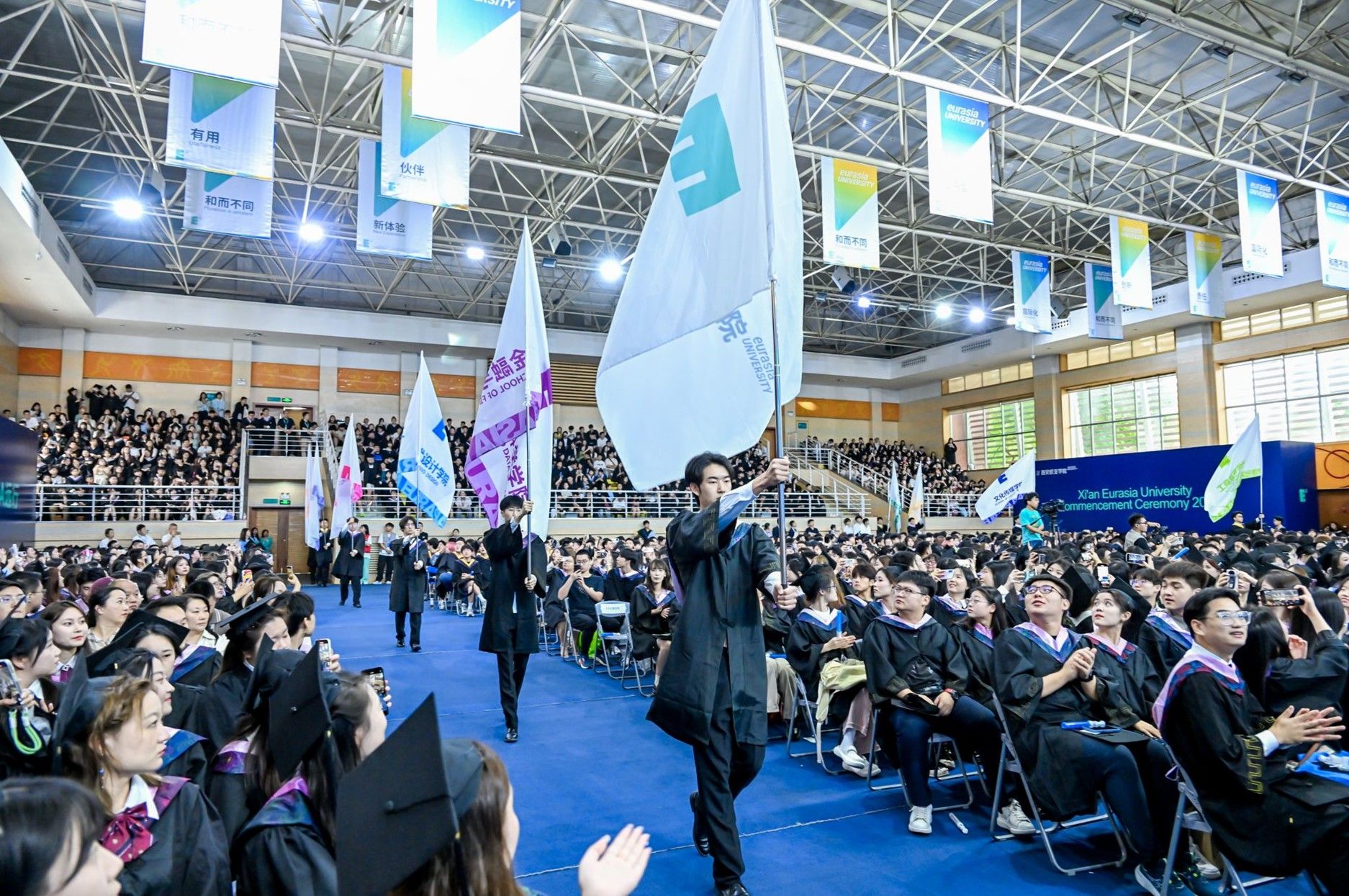
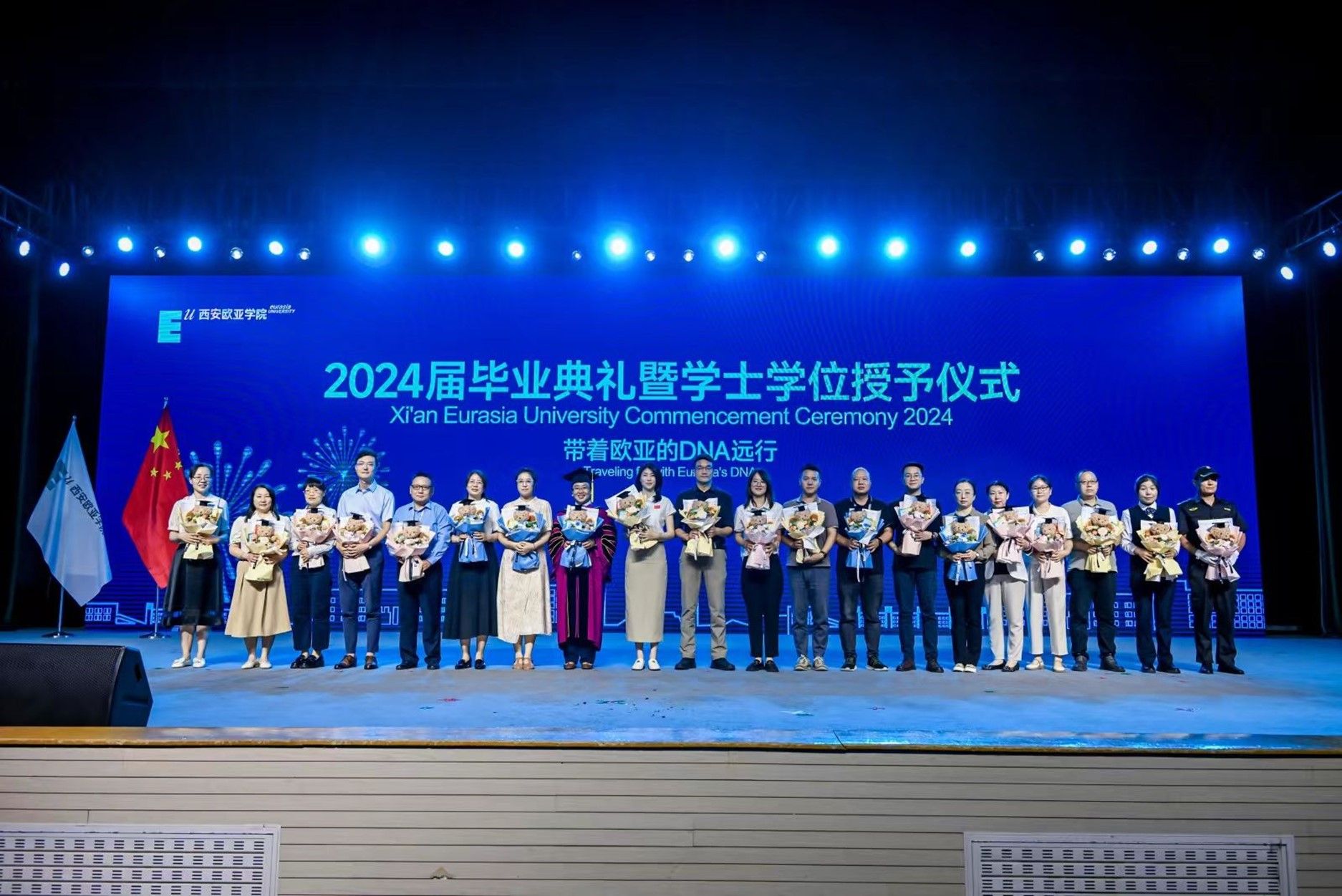
(Fig. 2, 3, 4) Pictures of the 2024 Xi'an Eurasia University Graduation Ceremony
Redefine Emotional Education
The renowned psychologist Benjamin Bloom divides the comprehensive goals of education into cognition, emotion, and practice. Cognition or knowledge is no stranger to us. What we have learned from childhood to university is knowledge. What we have been tested is knowledge. After the test, what we forget is also knowledge. Compared to knowledge, the process of learning leaves us a more lasting impression. However, including "emotion" as one of the three major educational goals might be something many have not heard about. I have studied Bloom's taxonomy. Honestly, I did not pay much attention to this aspect.
On June 14th, Mr. Tong Ming, Professor at California State University and Distinguished Professor at Xi'an Fanyi University, gave a lecture in our library. He pointed out that the original meaning of the word "aesthetics" is to perceive, suggesting that translating "aesthetics" as "science of perception" might align more closely with its original intent.
Following his lecture, I asked Professor Tong: "In China, there's an emphasis on holistic education, encompassing morality, intelligence, physique, aesthetics, and labor skills. Aesthetic education is used to be interpreted as cultivating aesthetic appreciation. But according to your explanation, should aesthetic education mean perceptual education? Or in line with Bloom's theory, could it be considered emotional education?"
He responded, "There might still be debates regarding this definition in academic circles. But your proposition as an education administrator is that aesthetic education should be emotional education. I agree with this interpretation. Emotional education aims to develop students' perceptual abilities, including rich emotions, a sharp sense of beauty, fleeting inspiration, empathy, imagination, creativity, etc. Scientists, artists, and craftsmen all know that creation requires intense intuition and inspiration, which leads to enlightenment and acquiring new knowledge. The landscape, architecture, music, painting, design, and literature that we see all serve as mediums for emotional education."
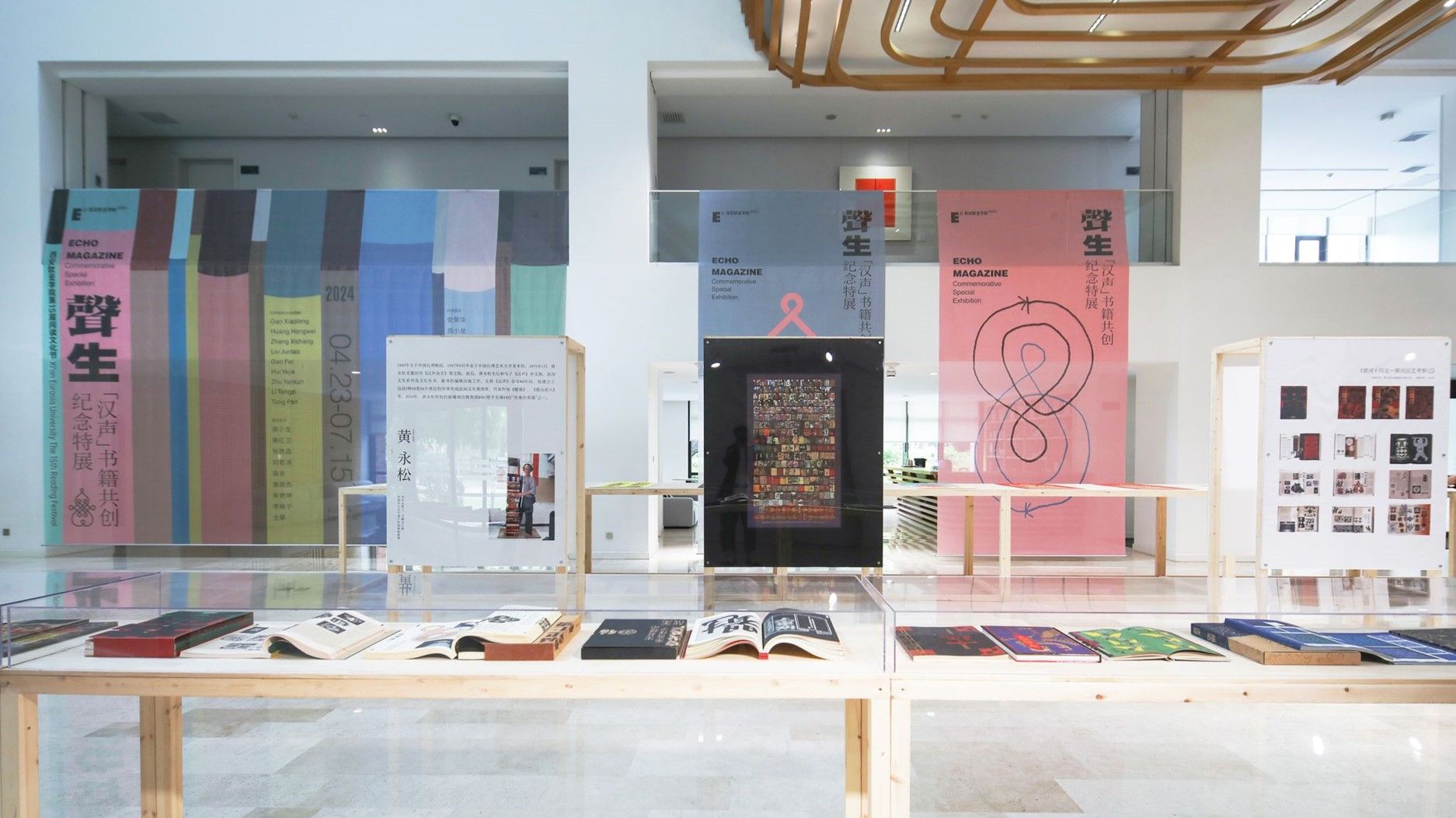
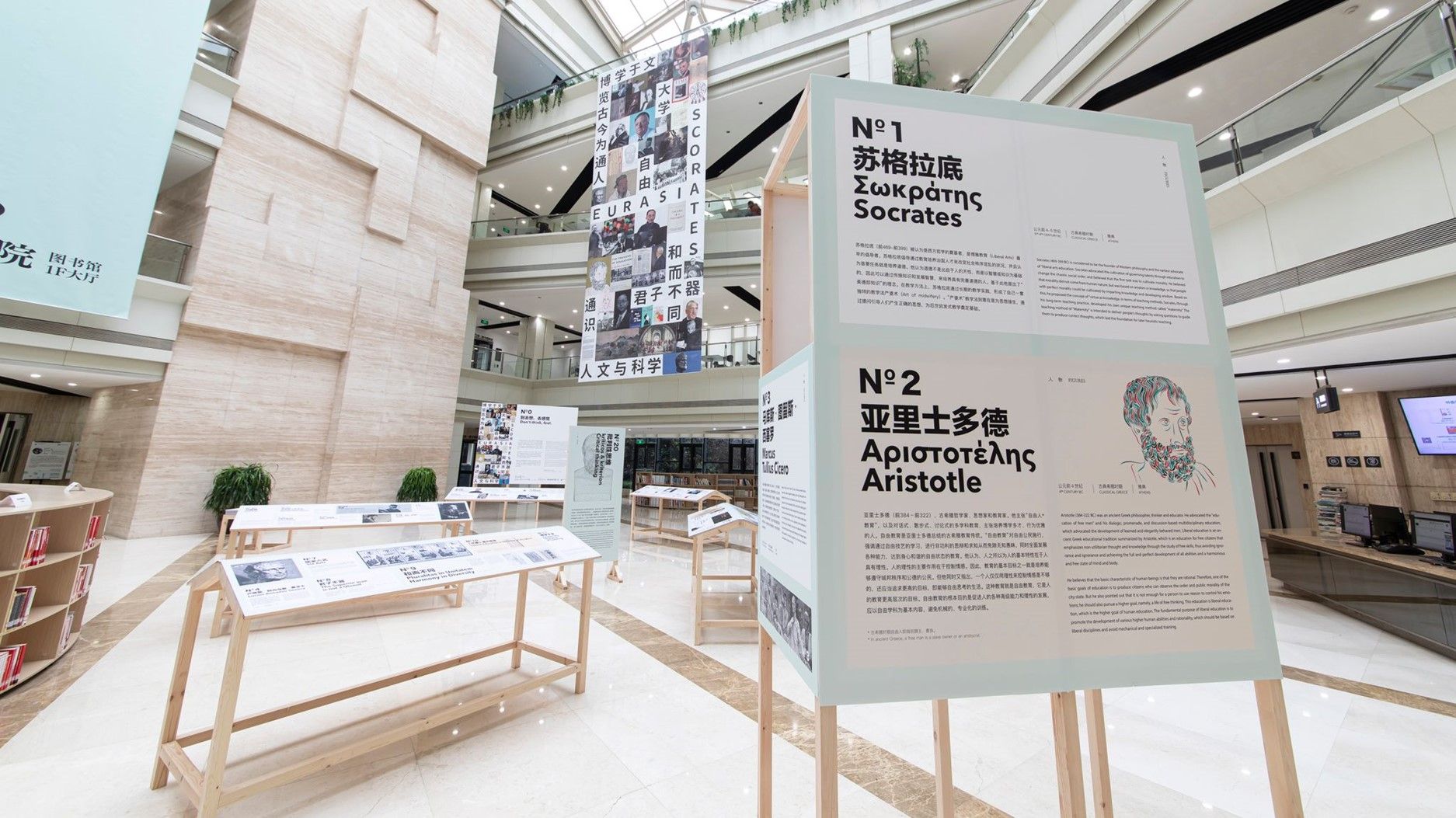
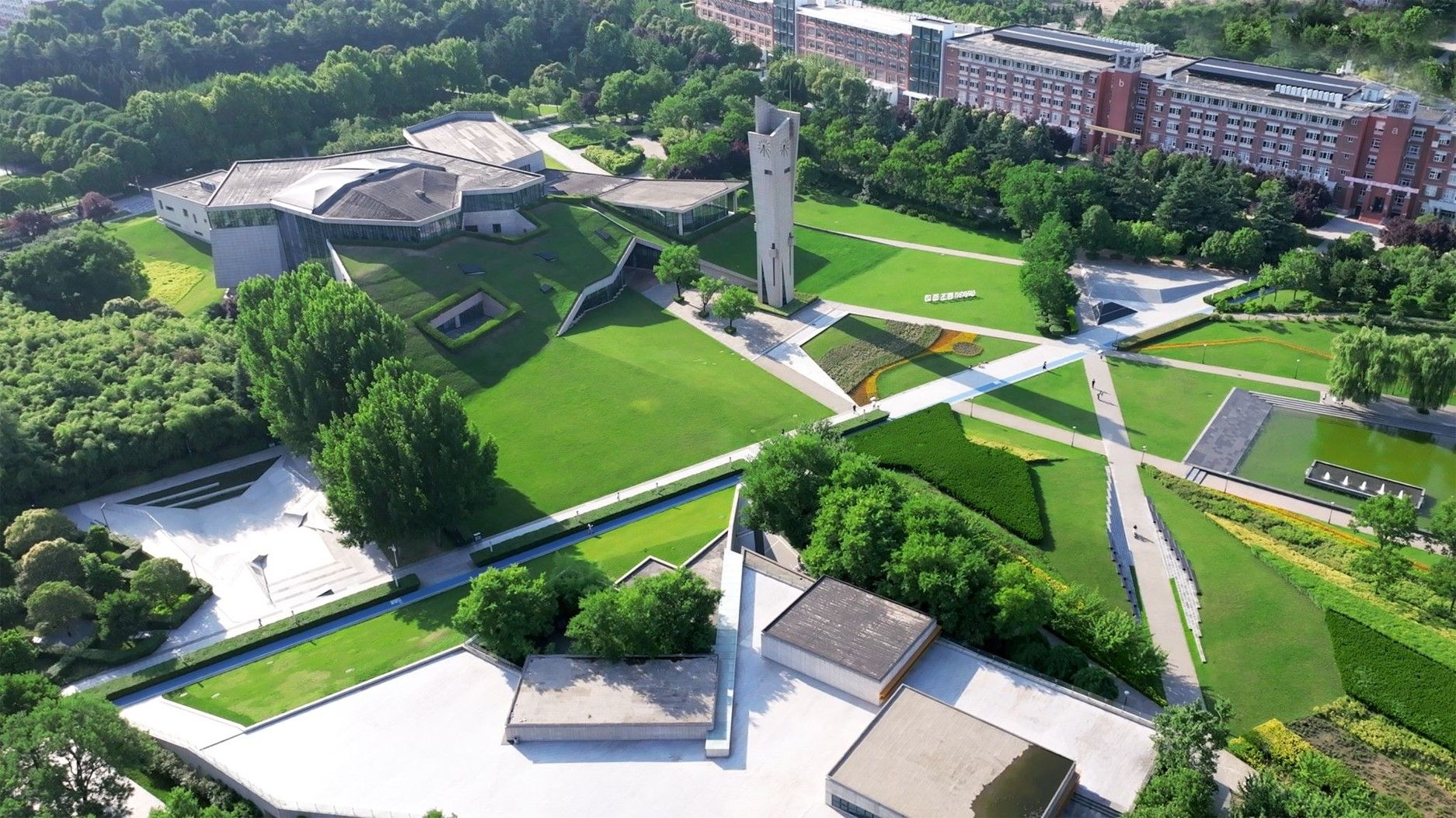
(Fig. 5, 6, 7) Beauty is everywhere at Xi'an Eurasia University
The Law of Universal Gravitation came from the accident that which Newton was bonked by an apple. The invention of the steam engine was inspired by a kettle lid lifted by steam. These miraculous innovations are all because they were first perceived, believed, put into practice, continuously refined, and finally popularized. This embodies the logic behind aesthetics and aesthetic education.
At the beginning of this month, as Xi'an Eurasia University concluded its undergraduate education teaching review and evaluation, an expert told me: "I now seem to understand why Xi'an Eurasia University places such great emphasis on shaping its campus environment and why everyone here exudes calm and confidence. A good environment serves not only as a means to educate by inspiring people's motivation and enhancing their attitudes but also stands as a goal of education, that is fostering a harmonious relationship between people and the environment."
Indeed, it is within the beautiful and free environment of Xi'an Eurasia University that people can relax both physically and mentally, feel what they feel, empathize with what other people feel, develop their insights and principles, keep practicing this process, and finally become more confident and take everything in stride.
Professor Tong stressed that cognitive education and emotional education are not in opposition. Professor Yang Dongping believes that what children need is emotional education, rather than knowledge. Considering the current status of China's educational system, I concur with Professor Yang's opinion. Many in the field of education have significantly underestimated the importance of emotional education and misinterpreted the essence of aesthetic education; hence there is a need to redefine emotional education properly.
We often hear skepticism about the utility of poetry, music, and painting. Professor Tong has already addressed this question: it all starts with perception and ends with reflection. As the saying goes, "What seems useless is truly of great use."
Finding Bosom Friends on Our Journey
What I learned the most recently from reading comes from The Sailor from Atlantis by Dr. Yang Wurui, a Resonance Scholar at Xi'an Eurasia University. It's less about gains as resonance and kindred spirits.
In his book, he discussed how Socrates and his friends debated endlessly about "what is justice." The crux of their disagreement was the friends' belief that people can't control their desires, which they deemed more real and powerful than "justice." As such, justice can merely be a tool or lie employed in the struggle between the strong and the weak. Seeing that he could not persuade them, Socrates chose to take his friends on a mind journey.
Socrates began by leading them upwards to visit a "good city-state," where they observed that a good city-state was an orderly polis with "each person attending to his or her duties." They then descended to see how a good polis could deteriorate into a bad one.
A bad polis was disordered, a city-state where predatory instincts blind reason and desire tramples over logic. People in such a state fail to recognize that the soul harbors nature beyond desire. They believed that only one type of person exists within the city-state—those driven by desire, regardless of whether they are strong or weak. In such a scenario, each does his or her job would not matter.
In the end, Socrates and his friends reached a consensus: diversity and uniqueness among individuals are crucial for each person to attend to his or her duties. To build a polis based solely on the order found in a blacksmith's shop or a military barrack not only fails to achieve true order but leads to extreme disorder instead. A city-state should embrace small orders to form a well-functioned order amidst diversity.
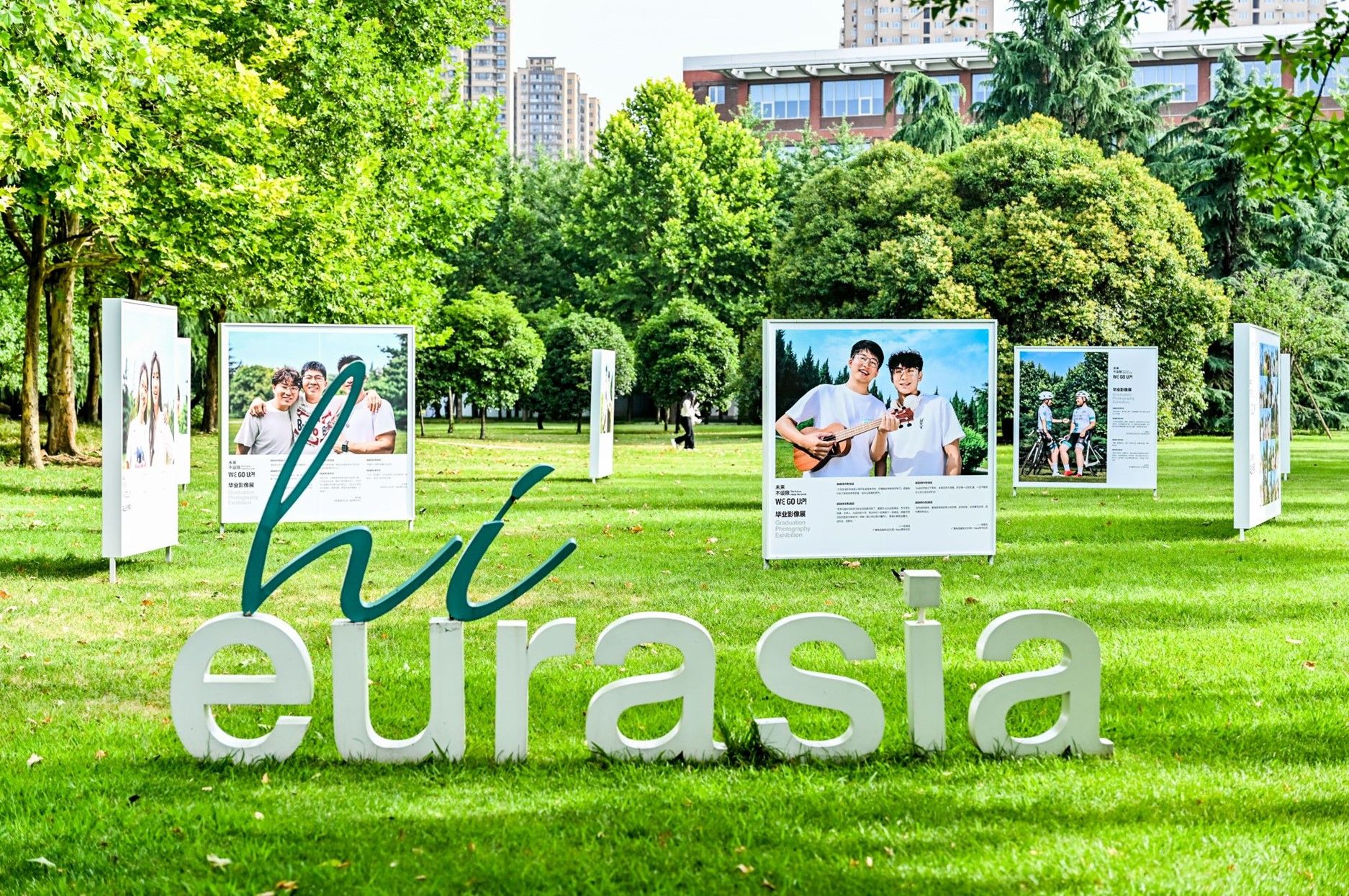

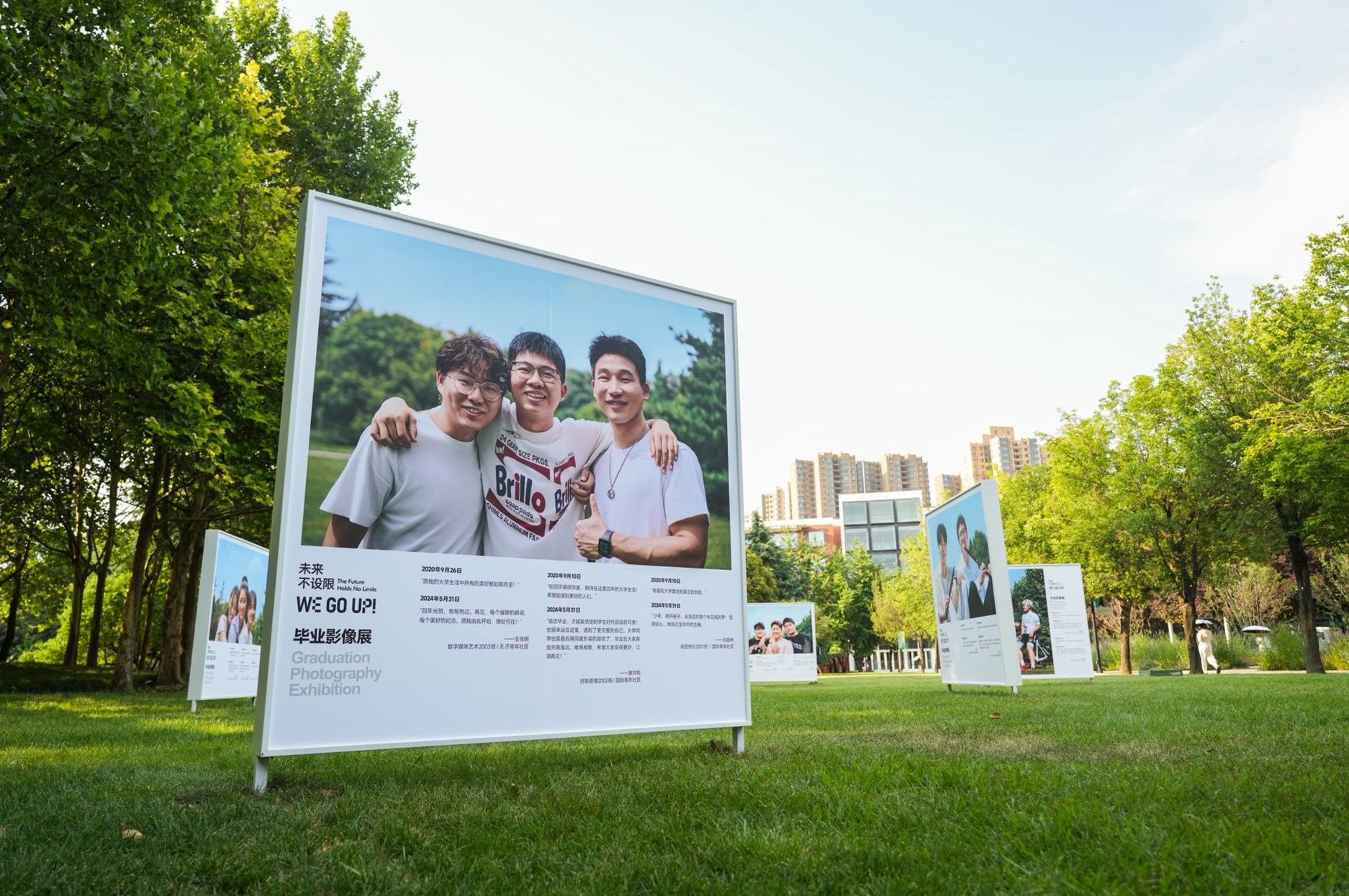
(Fig. 8, 9, 10) 2024 graduation photo exhibition of Xi'an Eurasia University
When Mr. Dang Sheng, Curator of the Museum of Design of Xi'an Eurasia University, first introduced the school motto in 2015, he proposed it in Latin (Pluralitas in unitatem), which can be directly translated to "inclusiveness in uniformity." Its Chinese equivalent is "harmony but not uniformity."
Shouldn't a good university aim to establish an orderly city-state that embraces harmony amidst diversity for many "interesting souls"? In such a university, teachers dedicate themselves to teaching, students engage earnestly in learning, and administrators effectively plan and support. Each fulfilling their roles. We are not the kind of school that relies on administrative evaluations and pools all efforts solely to enhance its reputation; nor do our teachers replace students' active learning with crammed lectures. We also do not leverage technological trends under the guise of promoting student individuality to question the value of schools or deny the importance of direct learning and emotional interactions between teachers and students.
I would like to share with you a story from The Republic about the allegory of the cave:
If one were to go back down into the cave and resume his original seat, wouldn't he be blinded by the darkness after suddenly leaving the sunlight? Wouldn't he be ridiculed then? Would not those trapped in the cave claim that it wasn’t worth going up like him for he had damaged his eyes after going up?
Many visitors asked me why Xi'an Eurasia University has a distinct vibe and makes extraordinary progress. Though I interpreted as much as I could, I still fell short of explaining it as clearly as I wanted, until I read Dr. Yang's book. I suddenly realized that Xi'an Eurasia University is akin to a traveler, who believes that only by broadening one’s horizons on a journey can one avoid controversy; only by witnessing what is good can one discern what is bad. We are like those coming out from the cave into the light; though often mocked by those inside, it is through seeking light that we come to know ourselves. A person who does not know himself and is driven by desire will always see his enemies instead of wisdom; a person who knows himself and has an interesting soul will constantly meet his bosom friends on the journey and get inspired.
Be a Beam of Light in the Ordinary World
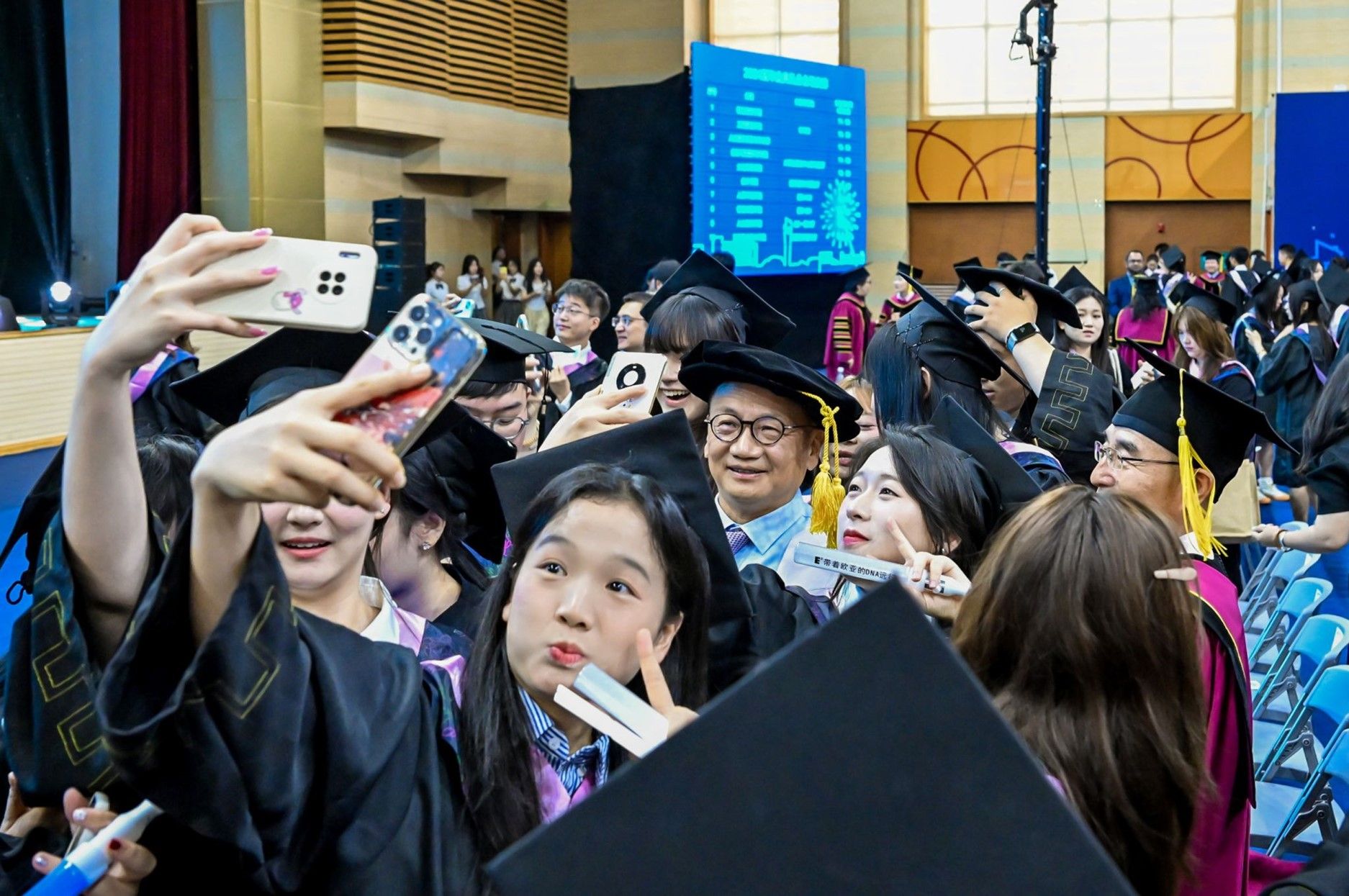
(Fig. 11) Group photo of graduates and Professor Hu
Over the years, I've often said at graduation ceremonies, "Students' choices are the reason Xi'an Eurasia University exists." I have asked many teachers and students why they chose our University. Some like the comfortable campus environment, where the humanized details make them feel respected. Others say they find a sense of value and purpose here. Of course, I am also clear that our University is still far from being a traditionally good university. Everyone here has greater expectations for our university and hopes that we will become one of the first class.
Let's take a look at the case of Pangdonglai. In the traditional supermarket retail industry, Pangdonglai's business can not be considered grand, for it is a local supermarket chain with an annual profit of less than RMB 100 million. Its founder, Mr. Yu Donglai, is an ordinary person with no bachelor's degree and no working experience in large enterprises. He regards his home place as the target market, focusing on improving the quality of life for surrounding residents and the well-being of his employees, and creating value for suppliers and enterprises. He has achieved remarkable progress and attracted unprecedentedly countless peers to learn from his experience.
Pangdonglai's vision is not to become a Fortune Global 500 company, but to help people "foster well-rounded characters and create a unique and positive life." Yu's word is his bond. He purposefully controlled the size of Pangdonglai and built it into a good city-state over decades. He has a sharp business instinct, remains true to himself, and is not driven by greed. He is the man who comes out of the cave, sees the light, and spreads it.
Isn't it the same journey that Xi'an Eurasia University has been on for the past 20 years? Isn't it the bosom friends we keep meeting along the way? As a school, we have more arduous tasks and a longer journey ahead. The pursuit of becoming a top-tier university is common, yet the commitment to original aspirations and the needs and expectations of teachers, students, and local communities is often rare. Therefore, we choose to be a beam of light in the ordinary world, to serve ordinary people around us.
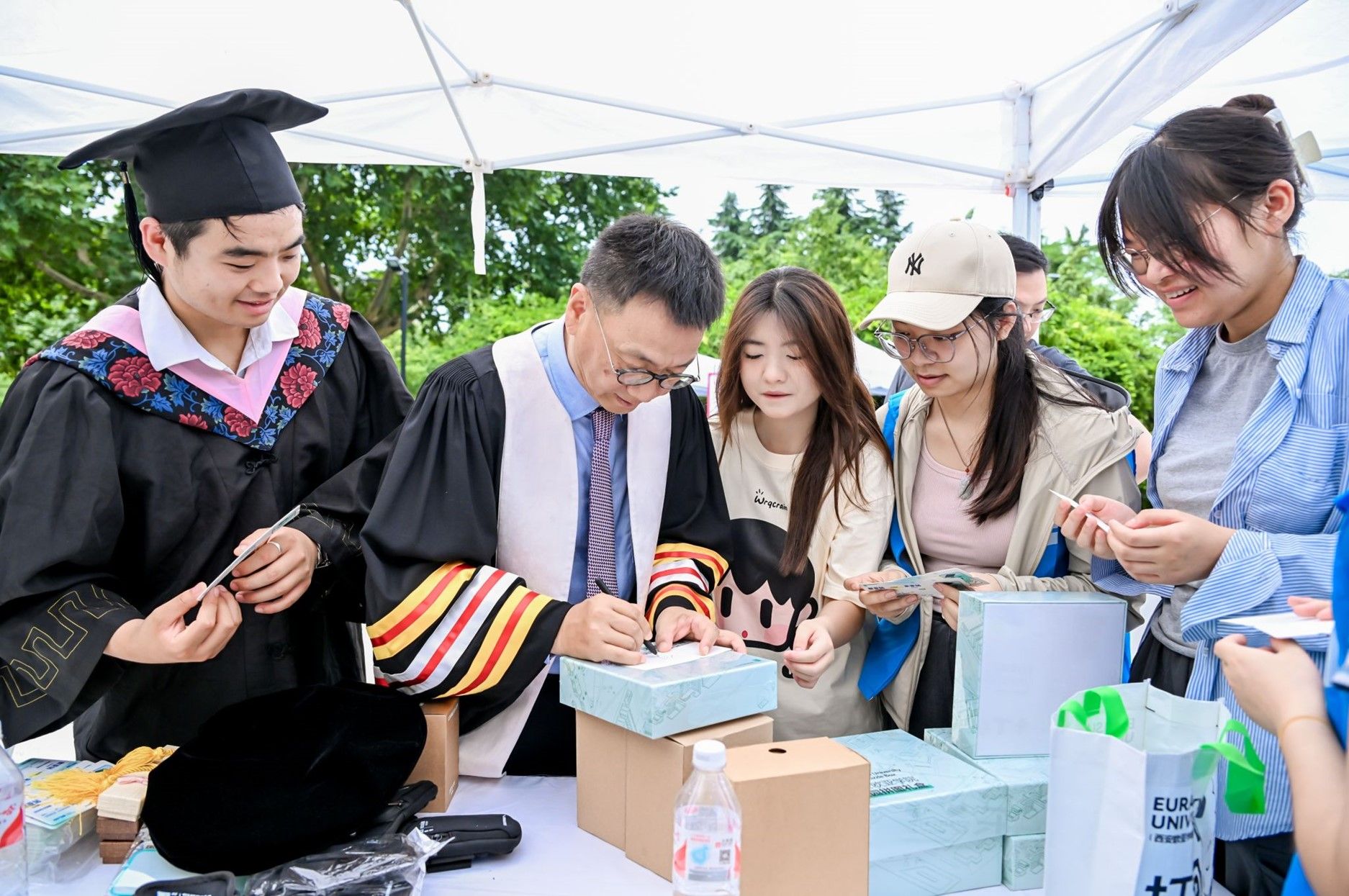
(Fig. 12) Professor Hu signed autographs for the graduates as a keepsake
"Do not be afraid; Take heart, for we are on a good path; Do not restrain, but expand all your strength." This is a line from Dante's Divine Comedy. I would like to bid my farewell to you with this poem. Thank you, graduates. Goodbye! (Applause)


